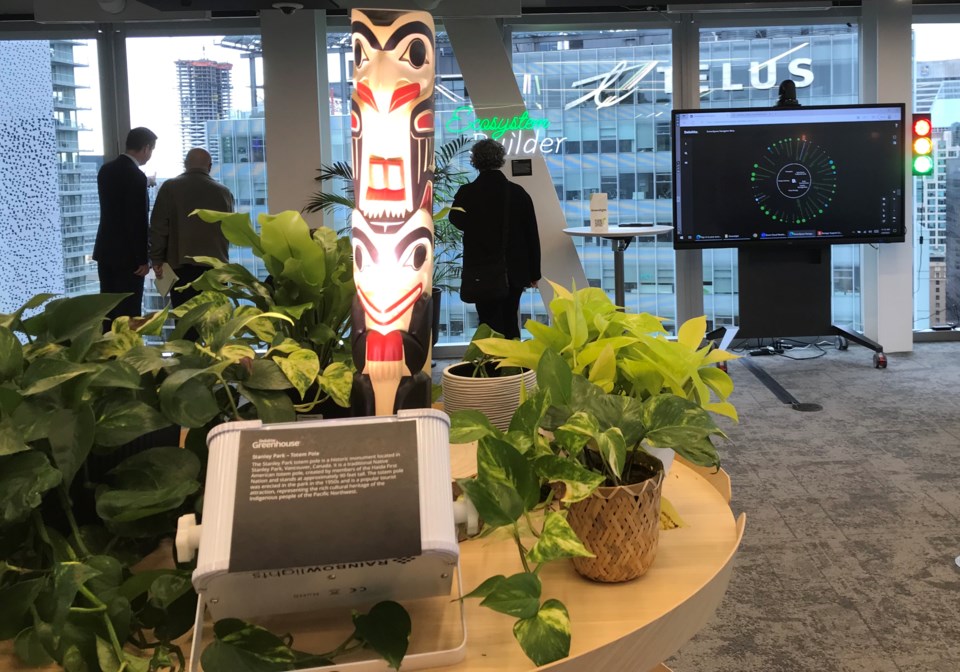Downtown Vancouver’s office market is in a period readjustment.
What employers and employees need out of workplace spaces continues to change. This, along with workers’ continued commute avoidance and preference for hybrid-work models, is prompting some companies to seriously reconceptualize the purpose and use of office space.
One example is Deloitte’s new sa国际传媒 headquarters, which officially opened Feb. 9. Encouraging employees to return to the workplace was a key consideration during the space’s planning.
“We all recognize hybrid, remote work is not going away. People love it. So it’s finding the right balance and mix. I don’t think we’re ever gonna go back to the old world, but I think there’s a bit of a shift into getting the next step right,” said Jodi Evans, managing partner for Deloitte in British Columbia.
With 18 different types of work spaces, no private offices and moveable furniture and walls, the goal behind Deloitte Summit was to maximize productivity and help change the way people think about an office, according to the company.
The new headquarters currently has the highest utilization of any Deloitte office in sa国际传媒, said Evans. This represents roughly 40 per cent of the pre-pandemic population base coming back into the office on a regular basis.
“It’s really about giving people the choice to say, ‘Where do I work best? Do I work best on solo assignments in my home? Or do I work best in solo assignments in the office,’ and Summit provides both those opportunities,” said Van Zorbas, chief culture and people officer with Deloitte sa国际传媒.
“When we collaborate and connect, what kind of space do we need to have so that we can bring out the innovation?”
Deloitte Summit launched in a moderately uncertain time for the office industry. The paradigm has shifted, said Tim Grant, president of PCI Development. The needs of office employees continues to change, and this has translated into increased sublease activity in the market and a rising vacancy rate, due to the introduction of new inventory, according to Avison Young.
In the downtown core, retail real estate vacancies have been increasing, with this being “likely highly correlated” with the increase in office vacancy in the area, as well as below-pre-pandemic foot traffic levels, according to Colliers.
Deloitte Summit was deliberately established in what Zorbas describes as an “ecosystem connector spot,” in order to be at the pinnacle of activity in downtown’s “innovation corridor,” alongside Amazon.com, Inc. (Nasdaq:AMZN) and high-tech entrepreneurs. In a media release, Vancouver Mayor Ken Sim noted such projects can help “energize” the city core, which has yet to fully recover from the consequences of the pandemic.
When it comes to design, the Deloitte’s provincial headquarters – built to LEED Gold certification – feature “natural collision spaces” where employees are encouraged to connect as they move through the building, according to Zorbas. The hope is that this can foster “in-between” moments of collaboration that are overlooked in a traditional office space.
“That’s why people want to work now, right? It’s thinking: ‘How do I have impact, how do I drive change, how do I participate in something bigger than me?’” Evans said. “You don’t want it to just be this big building where people can come in and do cool things, it’s about how you create connection, purpose and a home for people.”
Commercial real estate companies in Vancouver are increasingly investing in amenities as tenants attempt to attract employees back to the office.
“From the commercial real estate side, it’s about being as flexible and adaptable as possible so you can respond to what your tenants need and deliver that,” Damian Stathonikos, president of the Building Owners and Managers Association of BC, told BIV in November.
Deloitte will utilize approximately 104,400 square feet across the top eight floors of the building on West Georgia Street. Other tenants include Apple Inc. (Nasdaq:AAPL) and Northeastern University.



